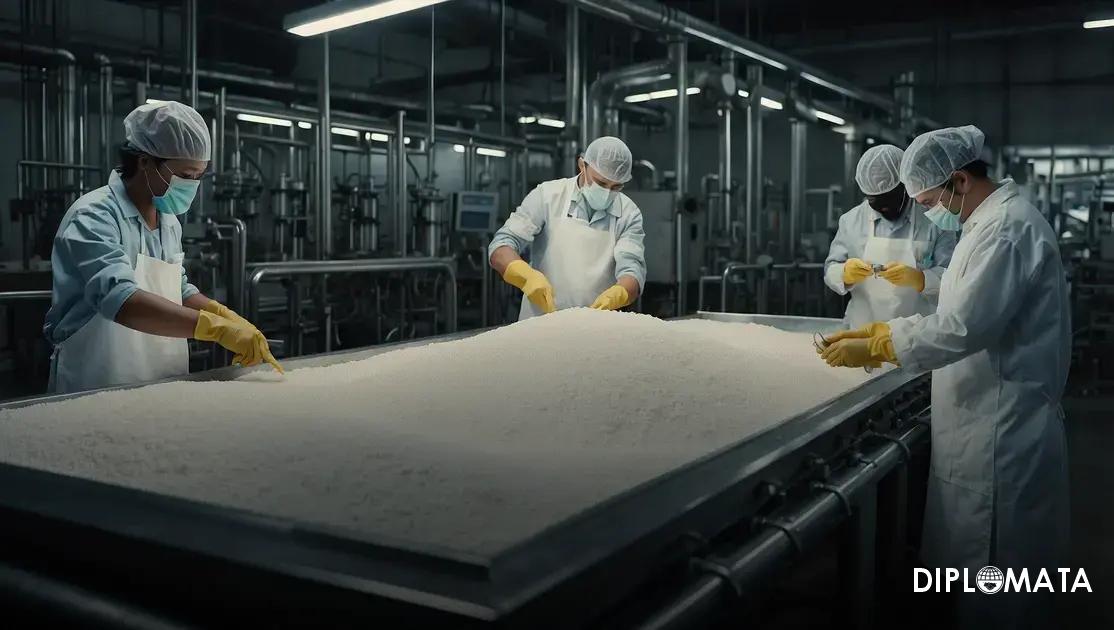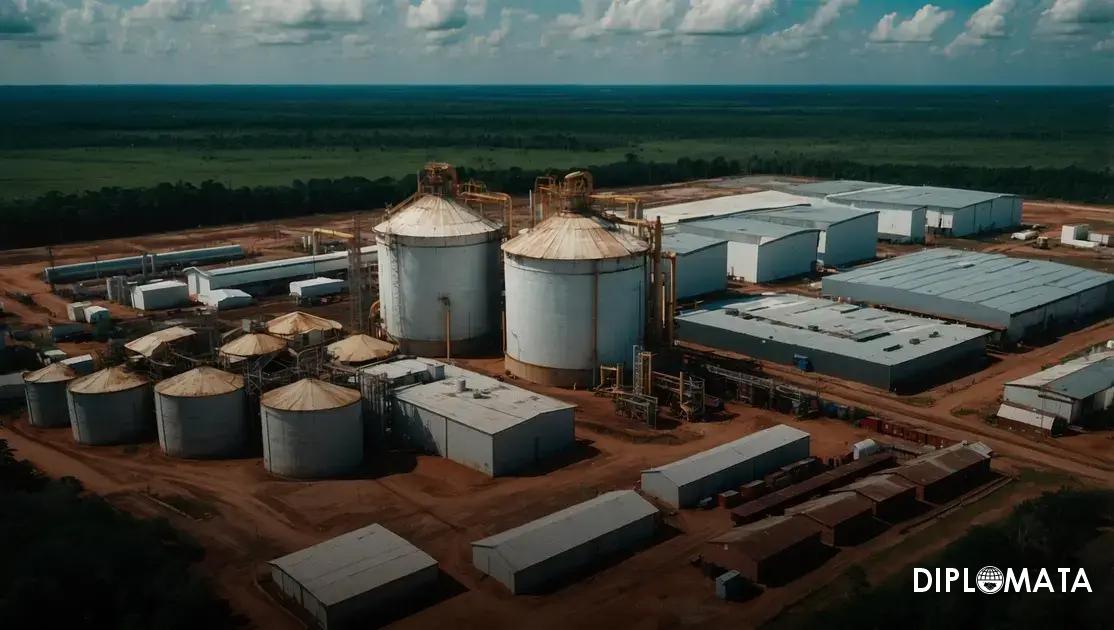Overview of Propylene Glycol Production Process
The production process of propylene glycol, a versatile compound widely utilized in various industries, involves several key steps that ensure the material meets the stringent requirements for USP-grade quality. This process primarily starts with the hydration of propylene oxide, which is derived from petroleum or natural gas. Through a series of chemical reactions, propylene glycol is synthesized, resulting in a product that is not only safe for consumption but also compliant with regulatory standards.
Raw Materials for Propylene Glycol Production
To initiate the propylene glycol production process, the essential raw material is propylene oxide. This compound is commonly obtained through the oxidation of propylene, a byproduct of oil refining. The quality of the raw materials significantly influences the final product’s purity and safety, making it imperative for suppliers like DIPLOMATA to source high-quality propylene oxide. Additionally, water is used for the hydration process, which further contributes to the overall quality of the final product.
Catalytic Hydration Process
The catalytic hydration of propylene oxide is a critical step in the production process. This reaction typically occurs in the presence of a catalyst, which accelerates the conversion of propylene oxide into propylene glycol. The reaction can take place under various conditions, including temperature and pressure, which are optimized to maximize yield and efficiency. The choice of catalyst and reaction conditions can significantly affect the purity and characteristics of the resulting propylene glycol.
Separation and Purification Techniques
Once the catalytic hydration is complete, the next phase involves the separation and purification of propylene glycol from byproducts and unreacted materials. Techniques such as distillation and filtration are employed to achieve a high level of purity, ensuring that the final product meets the stringent specifications required for USP-grade propylene glycol. This step is crucial for companies like DIPLOMATA, which pride themselves on delivering high-quality products to the U.S. market.
Quality Control Measures
Quality control is a vital aspect of the propylene glycol production process. Rigorous testing is conducted at various stages to ensure the product adheres to the required safety and quality standards. This includes checking for impurities, ensuring compliance with regulatory guidelines, and verifying that the final product is suitable for its intended applications. DIPLOMATA employs comprehensive quality assurance protocols to maintain their reputation as a reliable supplier in the global market.
Environmental Considerations in Production
In recent years, environmental sustainability has become increasingly important in the chemical manufacturing industry. The production process of propylene glycol is designed to minimize waste and reduce the environmental impact. This includes implementing recycling measures for solvents and other materials used during production. By adopting environmentally friendly practices, DIPLOMATA not only complies with regulations but also aligns with the growing demand for sustainable products.
Logistics and Supply Chain Management
Effective logistics and supply chain management are crucial for the distribution of USP-grade propylene glycol. DIPLOMATA excels in ensuring timely delivery and maintaining product integrity throughout the shipping process. This involves careful planning and coordination with shipping partners to navigate the complexities of international trade, ensuring that their high-quality propylene glycol reaches customers across the U.S. without compromise.
Applications of USP-Grade Propylene Glycol
USP-grade propylene glycol has a wide range of applications across various industries, including pharmaceuticals, food production, and cosmetics. Its unique properties make it an ideal ingredient for formulations requiring safe and effective solvents, humectants, and emulsifiers. Understanding these applications is vital for suppliers like DIPLOMATA to effectively market their products and cater to the diverse needs of their clientele.
Future Trends in Propylene Glycol Production
The future of propylene glycol production is poised for innovation, with advancements in technology and processes expected to enhance efficiency and sustainability. As market demands evolve, companies will need to adapt their production methods to meet new regulatory requirements and consumer preferences. DIPLOMATA is committed to staying at the forefront of these trends, ensuring that they continue to provide premium-quality propylene glycol to the U.S. market.


